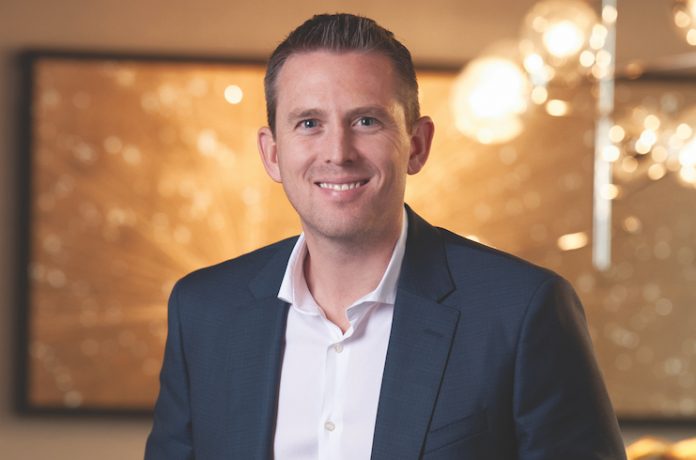LODGING caught up with Sloan Dean, who is CEO and president of Remington Hotels, at the recent Americas Lodging Investment Summit (ALIS) in Los Angeles. There, he shared his thoughts on the industry and why his company will always consider company culture while navigating a course through the current investment climate in which he sees cause for optimism despite challenges due to inflation, staffing, and the continuing pandemic.
What are you observing about how the pandemic has impacted the hotel industry?
It’s been something of a roller coaster ride. We were optimistic after the vaccines were introduced in early 2021 and saw an upshot in demand that spring. Some of our hotels were busier than ever from June through August. Then, when Delta hit, it was a bit of a gut punch that led to a pullback in the fall, without the return of business travel we had anticipated. However, by December, our total company numbers were back up; in fact, they were the best of the year and only slightly below those in 2019. But then came Omicron, which I believe is the last real gut punch, after which the pandemic phase of COVID will give way to more of an epidemic phase.
We’ve got our challenges, but we should not forget some of the positives. First, when demand came back last spring and summer, it was sooner than anticipated. Also, there’s a lot of pent-up demand—groups, events, travel—that has not yet happened. Another positive is that travel, which our country had exported more than imported in the 20 years since 9/11, is staying home now and benefiting places like Florida and Hawaii, something I expect we’re going to see in strong fashion again this spring and this summer.
All in all, I’m optimistic about the industry. Once we clear winter, I think things will be much improved.
What are some of the major challenges you alluded to, and how are you dealing with them?
Inflation is a problem. People paying more for necessities like gas and food feel poorer, and may be less inclined to spend on travel despite that pent-up desire.
Then, too, is the labor shortage, something our company has been working to resolve mainly by raising the rate of hourly workers to be competitive with wages in other industries in order to draw people back into the industry.
We’re still short-staffed, but less so, and we’ve also changed how we operate in certain areas—particularly food and beverage and certain amenities—which allows us to operate a hotel with 8-10 percent labor than we did prior.
For example, we streamlined our food and beverage working with US Foods and a couple of other distributors, where we buy more high-quality prepared foods, making less work for the chef, so I may only need one line-level cook instead of three; and in our non-luxury hotels, housekeeping now does tidies on the second day instead of the deep clean, so we’ve been able to reduce the housekeeping department, from, say, one of 35 to maybe 26 or 27 team members.
What are you looking at in terms of growth?
Our expectation and plan is to grow mostly organically in a way that we can continue to support a company-wide culture, although we are also looking at buying a few what I call bite-sized companies, and extending our reach—we’re now only in the lower 48 and Alaska—into Canada and the Caribbean. I think we will across 110-120 hotels for the first time in our history this year.
In my view, our company is likely to eventually benefit from the M&A spree underway at the largest of the third-party companies, which I suspect will be bogged down by the integration work and other demands of an even larger portfolio to the extent that it will compromise their ability to meet the expectations of the client hotels they serve, in some cases, prompting them to offer their contracts to mid-sized companies like ours, where we can support a company-wide culture.
Just how important is company culture as you move forward in this year?
Culture is everything. The venture capitalist and best-selling author on leadership Ben Horowitz has spoken and written extensively on this, including What You Do Is Who You Are: How to Create Your Business Culture. He describes culture as the set of assumptions employees use to resolve everyday problems, saying, “Your culture is how your company makes decisions when you’re not there.” In fact, when he considers investing in a company, he regards the ability of the founder to replicate a particular culture as a crucial factor in this decision.
Our own company culture is based on passion, and passion is not for everyone. We’re passionate about hospitality, passionate about delivering results for hotels, and passionate about helping grow people’s careers. Whatever we do in 2022 and beyond, it is that consistency with our culture that differentiates us from competitors who may be focused primarily on growth for its own sake.











